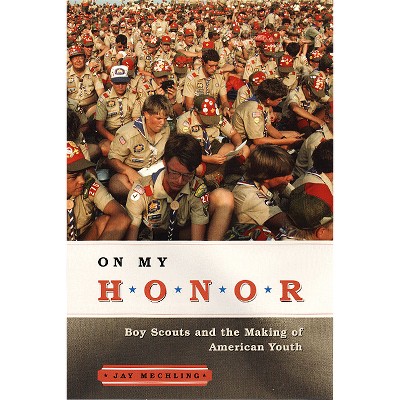Sponsored

Water on the Moon - by Frederick M Burkle (Paperback)
In Stock
Sponsored
About this item
Highlights
- After struggling through a challenging childhood afflicted with asthma, overcoming dyslexia, and dealing with an abusive father, Frederick "Skip" Burkle was determined to become a physician.
- About the Author: Frederick M. Burkle, Jr., MD's, career spans more than half a century as a physician with qualifications in pediatrics, emergency medicine, psychiatry, public health, and tropical medicine.
- 298 Pages
- History, Military
Description
About the Book
"After struggling through a challenging childhood afflicted with asthma, overcoming dyslexia, and dealing with an abusive father, Frederick "Skip" Burkle was determined to become a physician. Despite the odds, he achieved that goal and then entered the Navy as a draftee. His first assignment was deployment to a combat base in South Vietnam close to the DMZ, one of the most violently contested areas in that war-torn country. Besides treating combat casualties, Dr. Burkle provided humanitarian medical care to local civilians, many of whom were suffering from the wounds of war plus living with a host of tropical diseases. That deployment not only introduced him to Vietnamese culture but also to the type of medicine he would continue to practice for the rest of his career. In this memoir, Burkle shares his story as a pioneer in global disaster medicine. He served in three major wars and multiple country conflicts, and escaped assassination attempts during his position as the Interim Health Minister of Iraq. Burkle's story reveals the challenges of practicing medicine in war-torn areas; he dealt with complex political and power struggles, negotiations, and the poverty-stricken aftermath of conflict. He also shared his skills with health care professionals around the world, earning him a legacy as the "father of disaster medicine."--Book Synopsis
After struggling through a challenging childhood afflicted with asthma, overcoming dyslexia, and dealing with an abusive father, Frederick "Skip" Burkle was determined to become a physician. Despite the odds, he achieved that goal and then entered the Navy as a draftee. His first assignment was deployment to a combat base in South Vietnam close to the DMZ, one of the most violently contested areas in that war-torn country. Besides treating combat casualties, Dr. Burkle provided humanitarian medical care to local civilians, many of whom were suffering from the wounds of war plus living with a host of tropical diseases. That deployment not only introduced him to Vietnamese culture but also to the type of medicine he would continue to practice for the rest of his career.
In this memoir, Burkle shares his story as a pioneer in global disaster medicine. He served in three major wars and multiple country conflicts, and escaped assassination attempts during his position as the Interim Health Minister of Iraq. Burkle's story reveals the challenges of practicing medicine in war-torn areas; he dealt with complex political and power struggles, negotiations, and the poverty-stricken aftermath of conflict. He also shared his skills with health care professionals around the world, earning him a legacy as the "father of disaster medicine."
Review Quotes
"Water on the Moon tells the story of how of how a young boy discovered his dream of caring for people in distant lands, and battled a series of increasingly complex obstacles throughout his life in realizing that dream and passing it along."-Salon
"Compelling. The stories are priceless-eg. the defibrillator, the blood supply at Al Kanjar.... A lot of technical questions I'd love to ask. For me, Appendix 2 is brilliant. I am concerned that knowledge remains siloed and doesn't reach people who need to know this stuff. Your book is on my Missioncraft list of required reading. But bigger audiences need to know."-Dr. David Bradt, MD; "Water on the Moon is an indispensable account of the life and work of this paragon of medicine and public health."-CounterPunch
"Frederick M. 'Skip' Burkle, Jr., MD, always took the moral and ethical path throughout his career, while helping to found the field of humanitarian assistance and disaster medicine. He notes that, 'everything I experienced in war was preventable. It need not have happened. War is not the answer.' But given that the warmongers continue to take us to war, we need the Skip Burkles who blunt the worst effects. ...indispensable... 5 stars"-Seiji Yamada, MD, MPH, Professor of Family Medicine & Community Health, University of Hawaii
"Well written... a geographical and historical exposition of service and sacrifice. It had to be exhilarating and excruciating to write. [Burkle's] experiences demonstrate the contradictions of humanity and cruelty of human beings.... [The] writing is clear and [the] frustrations and successes poignant. ... [The] memoir is a tribute to the many [Burkle] served with."-Bob Julianelle, attorney, Orange, Connecticut
"Younger clinicians and every humanitarian should study Dr. Burkle's memoir. It is a top shelf book. ... Role models like Skip shaped me to place medicine above 'war fighting.' Water on the Moon is a must read. ...highly recommended...essential reading ... I have been blessed to be among the countless health professionals educated by Capt (ret) Skip Burkle, MPH, MD. ... Every chapter written by Dr. Burkle presents an opportunity for Socratic dialogue and deserves to be digested by life long learners and leaders. ... I strongly encourage every educator across military and civilian graduate schools to include Water on the Moon among their reading lists."-William L Bograkos MA DO, FAOAAM FACOFP FACOEP, COL MC FS USA (retired), past president Addiction Medicine AOAAM, founder WADEM Osteopathic Physicians SIG
About the Author
Frederick M. Burkle, Jr., MD's, career spans more than half a century as a physician with qualifications in pediatrics, emergency medicine, psychiatry, public health, and tropical medicine. As a pioneer in the field of global disaster medicine, he has taught and mentored countless health professionals, and is often referred to as the "father of disaster medicine." He has published more than 550 articles, multiple abstracts, 80 book chapters, and authored four books, three on disaster management. In 2007, he was elected to the prestigious Institute of Medicine. He lives in Kailua, Hawaii. Jan K. Herman is the former chief medical historian of the U.S. Navy. He has written and produced documentaries for the Navy, highlighting its medical service during World War II, the Korean War, and Vietnam. He has authored more than 50 articles and five books. Now retired, he resides in Takoma Park, Maryland. Megan Snair is a science writer and public health consultant for SGNL Solutions. Previously she was a senior program officer at the National Academies of Sciences, Engineering, and Medicine, leading consensus studies and workshops on global and U.S. health policy. She lives in Evergreen, Colorado.Shipping details
Return details
Discover more options

















